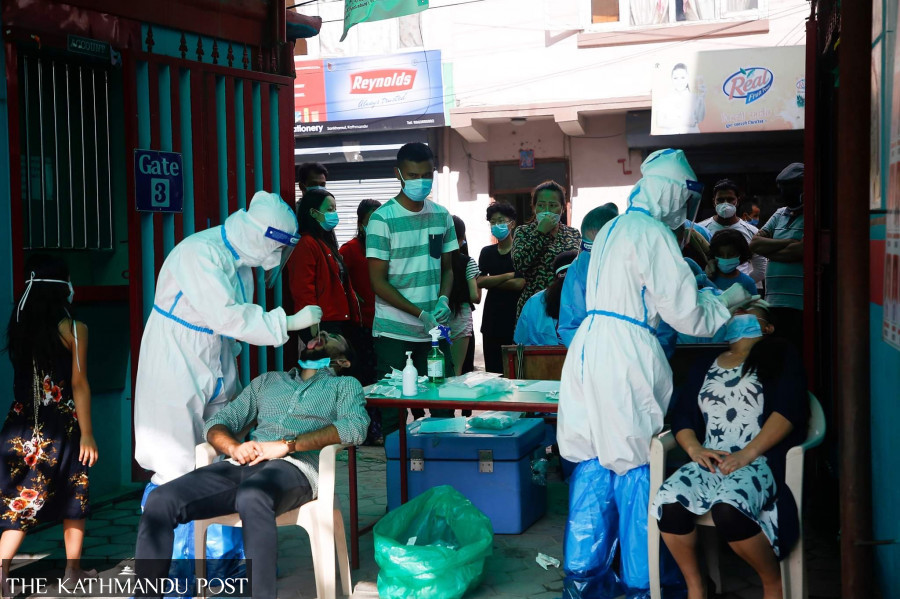Money
IMF approves $395.9 million credit for Nepal
Programme will help fill financing gaps and will catalyse additional financing from Nepal’s development partners, according to the international financial institution.
Post Report
The International Monetary Fund (IMF) has approved a $395.9 million (around Rs47 billion) extended credit facility for Nepal for Covid-19 response in mitigating the pandemic’s impact on health and economic activity, protecting vulnerable groups, preserving macroeconomic and financial stability, and supporting sustained growth and poverty reduction.
The executive board of the IMF approved the 38-month arrangement on Wednesday.
The programme will help fill financing gaps and will catalyse additional financing from Nepal’s development partners, the IMF said in a press statement on Thursday.
Approval of the extended credit facility arrangement enables immediate disbursement of $110 million, usable for budget financing. This follows fund emergency support to Nepal in May 2020 under the rapid credit facility equivalent to $214 million at the time of approval.
The Covid-19 pandemic is taking a heavy toll on Nepal’s economy. From April to July 2021, Nepal suffered a devastating second wave of Covid-19, interrupting a gradual recovery in economic activity. Nepal’s GDP contracted 2.1 percent in fiscal year 2019-20.
The World Bank in its Global Economic Prospects report published on Wednesday said Nepal’s economy may grow 3.9 percent this fiscal year, ending mid-July 2022, unchanged from its June 2021 outlook.
The IMF said that collapse of the tourism and service sectors, which are key drivers for growth, will take time to recover. After a sharp drop in 2020, imports have rapidly grown, fuelling a large current account deficit [8.3 percent of GDP in 2020-21].
The gross international reserves remain adequate but have begun to decline in recent months. The Covid-19 shock affected both revenues and expenditures with the fiscal deficit expected to widen from 4.2 percent of GDP in 2020-21 to 6.3 percent in 2021-22.
The fund-supported programme under the extended credit facility has three main objectives, aligned with the government’s Relief, Restructuring, and Resilience (3R) plan.
First, mitigating the Covid-19 impact on health and economic activity, and protecting vulnerable groups, including by making room in the budget for health, social assistance, and job support, while enhancing fiscal transparency and governance, the IMF said.
Second, preserving macroeconomic and financial stability, including by maintaining a prudent fiscal stance, preserving reserve adequacy, and strengthening financial sector regulation and supervision, according to the IMF.
“Third, supporting a reform agenda that leads to sustained growth and poverty reduction over the medium term, including by implementing cross-cutting institutional reforms that improve governance and reduce corruption vulnerability.”
At the conclusion of the IMF’s executive board’s discussion, Bo Li, deputy managing director and acting chair said: “The Covid-19 pandemic severely impacted Nepal’s economy, including through a decline in tourism and domestic activity and volatile remittances. Households are experiencing an ongoing shock to income and social assistance programs have limited coverage, implying a likely setback to poverty alleviation gains in recent years.”
“The extended credit facility arrangement will support the government’s priorities, to mitigate the pandemic’s impact on health and economic activity and protect vulnerable groups; preserve macroeconomic and financial stability; support sustained growth and poverty reduction; and catalyse additional external financing,” he added.




 12.62°C Kathmandu
12.62°C Kathmandu












